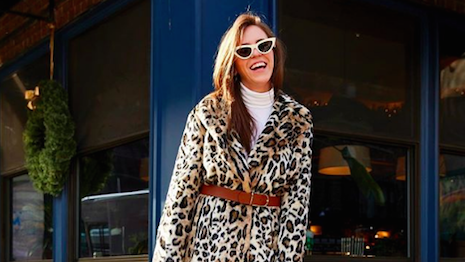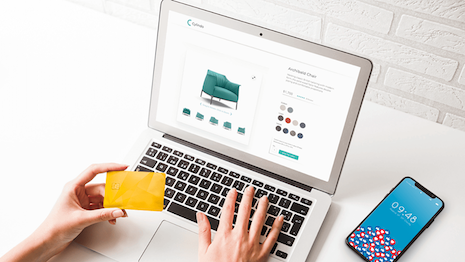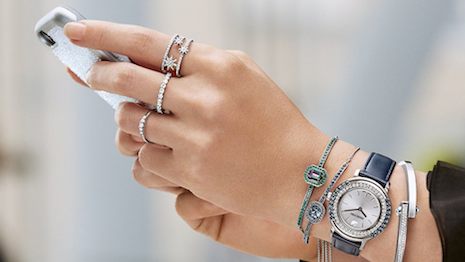Despite marketers’ recent emphasis on social media platform Instagram, its sister network Facebook is actually the top digital channel to discover new brands.
According to Criteo’s new “Why We Buy” survey, brand Web sites were the second most popular discovery channel and were cited by 46 percent of respondents compared to Facebook’s 49 percent. Online advertisements are another important way consumers find new products, according to almost half of respondents.
“Our survey data indicates that online ads help 48 percent of consumers discover new products, while driving them to Web sites with more information,” said Jaysen Gillespie, vice president and head of analytics and data science at Criteo, Los Angeles. “Marketers know that their brands’ data need to be connected across devices and leveraged into highly personalized advertisements.”
Criteo surveyed more than 1,000 U.S. consumers in February 2019 for its brand loyalty survey.
Discovery and loyalty
Google’s YouTube rounded out the top three digital channels, coming in after Facebook and brand sites, and was mentioned by 40 percent of consumers.
While almost half of shoppers found new brands through Facebook, only 27 percent of respondents said they discovered new brands through Instagram. More than a third, 36 percent, cited email marketing as a way they found new companies.

Influencers may impact purchase decisions less than previously thought. Image credit: @your.gal.shan
Despite the increasing investment by marketers in online influencers, only 15 percent of respondents said they were responsible for any discovery. Twitter and Snapchat fared even worse, at 14 and 12 percent, respectively.
Almost three-quarters of consumers are willing to try a new brand in a major shopping category, including 72 percent of apparel shoppers. As the concept of brand loyalty has evolved, premium direct-to-consumer labels such as Everlane and Glossier have flourished.
Luxury brands have the least to worry about when it comes to shoppers who hop from brand to brand.
Less than half, 46 percent, of shoppers looking to purchase jewelry or luxury goods are likely to try new brands.
Generally, shoppers want the best quality at the best price available, but that is not the only consideration for consumers.

Consumers want the best quality at the best price. Image credit: Cylindo
While only 13 percent return to a brand solely because it is considered a luxury label, 49 percent are drawn to product selection and 40 percent are influenced by quality customer service. Thirty-one percent also patronize brands that offer something shoppers cannot find elsewhere, emphasizing the importance of exclusivity and uniqueness.
“Value isn’t low-price leadership – it’s getting the best total experience for the price,” Mr. Gillespie said. “Luxury brands should lean into the desires of consumers that are not as price sensitive: truly relevant communications; a compelling, upscale retail experience and customer service that goes above and beyond.”
Value impact
Criteo’s survey also supports the notion that consumers are becoming more ethics-oriented. Over a third, 35 percent, of respondents say they are more likely to shop a brand with similar values after an initial purchase.
While luxury brands often stayed out of politics, fashion label Balenciaga has recently waded into partisan discourse and charitable fashion with runway collections inspired by Bernie Sanders and the World Food Programme
Balenciaga feels it has a responsibility to use its position and popularity as a platform for causes it cares about, according to the label’s CEO. As a panel during The New York Times International Luxury Conference on Nov. 13 discussed, luxury brands are wading into political and cause-based discourse, which could be a potentially risky move, but up-and-coming generations of consumers are looking at a brand’s values as much as its craftsmanship or heritage (see story).
While luxury labels are among the fashion industry’s frontrunners in sustainability, these companies are facing challenges to achieve additional progress and impact.
A report from the Boston Consulting Group and the Global Fashion Agenda finds that luxury brands improved their sustainability performance in the past year. Despite improvements in the overall fashion industry’s sustainability, the report notes that there is still room for improvement (see story).
“One out of six shoppers stopped shopping if a brand’s values weren’t aligned with their personal beliefs, while 51 percent stated their purchasing decisions are affected by a brand’s value,” Criteo’s Mr. Gillespie said. “The days when marketers could ignore values are long gone.”
{"ct":"lHGoqv1QcNXXV8f2iMyDnRV4Hc206WGABaQV0+anlu2nL+\/Pr+YD1jXg7n8E2L03If9pGQWhddgqW4QxFQxLsuoe6qlvUJ073VOfxJ8XYJMY2TZtaYHxFPL0RnPnB7SFQYPuV\/5r7EA8LEF\/okH\/MzzPzeHHhXEr7f+1cjfQ1E9hOzPD08I32oP7lKgth\/D12CXRniG7HqKdFj\/m4dcreuDi9qiRQayQpn7WQ8NESByHvr7ArmiignED91XcgkBk1NKcmZS4TR3SORdbXPndvHMVOs+fmH3+ULXcva5SXT4MUBe03nIG3ki8wPjVyVurJwvkcxI84Kma93RECUELji6hsZ0oBhlWYaSrJkQdFceqwatY+j8iHBbFt\/V\/NSZguzRL6Rv0\/6+6rnMGAxTQpU3G\/t9FoG9uc8cVgz\/I5a6GlggJLaCKMVHBF7DHw\/lt92urJpY7KomJApxkfr4rKvsaRqPJztJU\/utb73vRJpMQswPTJrMdvvBnaIaf3d85p7sDRUIS8l6o3aU9DX12lVyYo1+oLgXaYZUo825bRYxmP1MO2YwKCXuVe9C5G4QIuThpKesCMvEjGYPetfGEmmhAFRNBE\/mYX\/ajps8I6x+Enw4EA9VoOASuE2DMob41iTABeCMsPJ0\/ufEUAcnAh+tMyWkX3tvz5ygg4DUEqYf2dIWUgmJPOz0JD04NmqMw45bMmd5a+z2uNOWjQNc9M0B9PFx8t9Dt7A67zuHrGkmC+aEKgGxrpIUPltf3C3\/LwIh9WTBr8SfR2eazvtl5e5qALzID+DXz2AHVcLUxfvgz0zQRmzo0UB808HUg0AWSCJmApSZw1az21UdCgIVNxj+zyIXEgakOk0IZZpmAIzZFImutNoso5+A9vBELunV440eZnqh5zePdiWqiI\/+iEMXML2I19od5RH3LJggCPgsYxa3BwOXk44MrEcl19opmVgIhEI26XKDDdQ0v+zs\/xBibUy5ihcAprnJ6defO5cCSq557YP98BQlofaiaJEeAVnQXh702Dxexm7pTD1xFsSCABvQO0X40Hv1aH6Lid4SOqos2VnAy51tRLIvC5jCnwFgsbJZjrNYTrB9W1uhfycd7h\/jdL65VI00W2d2yUIrsXJZYZX9bYTMJ7CisVkRdNRXI8jJpou7lwmmV+5buUDhgQFZHvtGncDzBkjtypLxYoYq\/g8bgGug\/4cir7r3\/uFD7VUyPKgKFzqyWQsB+Q8haKsJ0dajkHHAT7+RVw3mU1nqxyfDeROoEFJ\/FU1u4u7CbpQlA0m4OGdcrLfnrLBAIAbBXj4L1bbaakVOCrGxRw0aPN\/ku4G5aX+8kT3JOIEuIqEjDXaGELDg+TrHkFTleDwrUF0rPk2+gmjOlas3EqP80kKaRfAKATiD1lOavW\/a+Os+AQrfJcGeYsBfMqWlSSNduhFcaJ4kyuRCyJHCCRoGg0XhaY1svgh8mKqZa59NHxgoQtzWgYPDmzLSAKXd6KbsikPcGh4lWmpJK2yTEBOETGWK2n4x7HaiNfvtp0LZ4zIh0jRhqtalkQKk0zosK\/eTuOg6aCgzX3VY2mu8kseIMYNwSgD7fBstWWUeXejPnx5vWdu0sVXUigaoplTrjlz9drYGvT0weo+osGblFI0oWx0LxERKIVwBoWEpT6wmDGeK5cT6HNnWg1H2oj8BHf3yW6o\/KOpLIHA6FxJQPUcrwZ9PK4kPh18cUxLFlmzg2Ee5rXh1xZoY6w9Ounb2xwUMxzmwJceCzPACwB1rlzluSvIQ45lnS3Bfx4EdJ9lyoj3qvHHSD1FBMc+ebi2YeacFtIqi9FwMjWcDiBg6FhGqx3MWlg9c4jTYcgznSOAeE15kJC4MbuCy5l3OKRoYsPt2gk3DJwbFmWsvejbqPxyICihwA9mmf2e4JE0e3ahrItPh2an\/KJcHRwpSeXp2YM34BX2dZErT5UIftjNLQw2hYPZmcXvJnRb+uDzK158sKdIPW9NHxpDeCrAnDg8ly96QHJD\/pyiduqHz+Vm7CZ+Ravibv\/LkMDMM4RQ3cS+bF\/h3CFjWrlwtgOPsR8VR+afOmr0J8XkcvdwKme\/Xh3zs0pkGg52t1\/evQUylJ1x+A2PD63leCl1rPPqX8SSqGT9n+WNFwiQcmWUpIZsNJKvqcM67KZxqwQNwKJVzzAJ2eWynniU\/zT5LXc1BWXFhsS6E7sAf4XApRfzCQKtvznJB9\/YWkEmcMHr\/RCuH\/gmh6dhKAqANpVgCOXUcvxa2VIBWXn4j2yDYkrrD+ctYXzA\/tHaAicTzsqy6plYOZmclP8EHOS\/5DFPr9lp\/A37kGtiq1FrRLXqxg3cH4EEJJP0kflvvSk+aAJ6U54i2YmVMe9AqO8UiftpcCeoukhePJJs3g2PGjTkx8sOao630Js5r5jY6i14oBzoOv97LWCFs+MgcgJsNHhrcFjdkY9TagH3ZPQ3cgka4RdzAkRlVWsyFi5scxbJySs7etI1aIxdj5hu3V7jVypVkktofSw8cwYlynHpNxGGlj7yXe3ki0XrAGjMadNHpid87EnhzHU+NBNzpRnUNv\/6zMeYpkfJK29v0hy+keTbVr0aIE1pjx2ySr8jbTub0Wp9nxIFfhSj2yEE9YoTVZN68rbiKTWLgFcPCS4sVA7trTjhC4UkJSwDSz7Emv3IOhD+eAkCb\/rpe8MBnCGxdqOlvzhp9oTYfKoZIPRndl+7VTDjEHhOnsfd+skIgm2Vs+13AJxKphtXouoLnYOir600y3FgQ+r98rfYPppsz3v7QDhc2ZW3PfApSEGB+\/cwMAFYvPlV4Mmc0B+idmiXqZVt5c\/jmAFjNi8IWOwI1qiLB5cLqBqE9EBe6k3fcormQ7ShOCcmqIMQd\/mKfD0CbXlmeIpTEyt4G4uNXfQbugC6jYO3lkMb1DTYdgR7zLsk+fmomRPVnJKlelTcwkumHHK1MsvdwUe5Q9tOCE7MAvNkh628pdO3luIU1QXJtNmTRaMRNjLeLW0inpW7R6UcU\/uirnpsLulccpqAWsSuvlPHxGkAfJP+n6CN1p09J9CnMGDSsnMLKryI53mse2W8xldCfrly6c2EyhIFf8ez1uM8Rg0xKJfT7rV1lpPX4ZQ0sT96OSLd2KpLJhGVoW4m5QXlK5HcNHl2oFs+4hh2LXgq1sW\/TPbEEQHKU3kIpupjsFT\/DjPH\/6I+v8tCfmQzdW9S+CquL\/ccayidX0nxYRu5p4T+HNNXms8E3pAAbNe3jGbmb4vReZpAijXjWR2lR2p5GSX5n3aEVRewN+ltuTk8YIvvDVCNGjYAjgaFFwo9W+nPDZkkt6FxYdTZu8a6vBmnyZa2Uxw9cA979lM3w1sruRTwtwknDKOtTM+LOC7D13H54oMOMxOw0jXeiODM59lYpdwCS+84IRIgSUvk24eNzuyJiUcgNJTXtCynTioEZx+IjWKzLsJu98+HR4eFeYMZ1zTvMxqw5sDTlmRsQi0+iGb9LdhlEGYhrs2tFr+SJDhhPH05hiwKzeduxjfMTa2c9zcXgz2TeFSGllcozmNnrdI47TkoMAko5p1GkHzC+secj8mOcN9lx8zF8UP63Qo8at4+IsqWibC5jpTVum2hDRDAwj\/BmS0EO0fKLmZFOwUIO5CBg7NUKdxu3DmL2eFs2Ai6D6LjYPJX0BTCMWC99qPaMXacCaiJu6+fYZFWnSwm57m27gfd0RVvk3TXDYwV1XU10OvlL1O2\/\/CNFUAwYhXfRvKx8T15zqjE+wgaOmep6Uiimi7+Kj0bPEbjCcY5LLpiRVNjq10KowtGV9FJqyE\/H9bZGqlMB\/Ms5qb\/6Eb69LTm93LiAr0Z8gNIInwWMF0BFNAV9\/+vChNQPwkYyQ9R9giMSndjcaBT\/uwaVVR+TR2kegejbaEYF3K0ux0bjGnOAKNuqMVIwF4fD7193X0WVMbD0J2xz6UDhtVq95qXVtYysDvzzaWmK08dGkrwS2aRf7WuHMr\/PXzj5HV2KZ9BcrSjI+J+fS+Qy5l\/FLzW4Rr72NObaydTaow3yqKOY8qZBptJjBaqT\/VdHfOVmdOWzLJtgIqsHNnpiHNr0GX8+HiUBNFOE0zrT1TlX3PlmJUGwwhXGpWvrzzKIho01mEC3VjXec36Ttq0tyU+V0vgoMbuVAqLVUZmod+xEinDiXFgXnJ9UkVBkqxpfxMSYanySg7UfqPlr2wsRtNoex+JZ7O4vD\/E411L7eITSG5z3qiBYNDJUvTcvzDJZ2q57G8IbjB2x+w2BsbZRW\/ThvCPcuafrYRsTQZ7MYviHt9YddItGKgvLrutzMzDzwws8Lh9W8wwuexLYobMeqAq89Yy+BtXtA9OMiFBzPoSe42eQ5u1oOSaaQV22TEioXa8oM9+QJFAN246y7xqrGz9OcKH3njKO4pUxEUHJ3XBJW50ychIoctkr9xcD1B\/0MeGWmY53QN4ncdw+sykE+CBryXyBsLixV\/HdbO4R6Swzqy9XLQ24ei1wSFSI14QpHi70kjDcWQKXRrQd7TTUZal+UIA7cNjwgWdU\/YfLU5cdcOGzxn11iB319mh74sNyL+4sVeJY3RZ9DOds89O\/lvEUB5dWD6aMGQdledSUhVJKJ\/GXO5HODi1+PD+jyrFXLUDTymX\/mApzyOpmXuCTZGHhMV5VFZ6TeLwO3mybibZijcCXpnj\/Py7aCVrcO4Yr9b\/p7A2iIjdO9uCEUam9T9QAyq\/AuoQPCry2h9\/SIc763KrcSpJ3M6fIAF+OG5YscyC7lJyY0apfcfvqdaSAkPTIpc14+Ri9C60Ap8HP7CMvh6qAc6F43ppHG77JCYBazwegi9UBsh0Q2wK0AbgdadssaSEkqwpYOQiY0TuP+0FEb1Sn1Nxs3q97LG4dkiQ8z\/aG01H1mcG14h4t3aE\/WAEqjL5vh9lCb4e5BiufleZWGTZt4\/ecuhkKO53dezYi3YsDVsKIyPP7xw8rX4z0\/jwgf2H9ZKRPyVGgdMgslXcBT8xr8c4aU+nX8GjSqCpLep6bGVZBSlVeLBzN7pbtzic7fDdT6B\/FuEErGFDPSYkrFYnQqJfOCoAUCWuRlIgFC+tVl6fNDcZ34R9CSXmRC323+IAXX5afMWXGJQWyYIESuC5XSfx+LzTC\/89xb1xGMy6TTJHgTV6NGqmoPrVkMBsmNjkAHRGJ6g7yYgPBmeuL1IREOgjqOFZvhDwQG45lO7Nl+zdibcdjRZZvzFN8HMYf8H571VdrF7N7KuoHpfV4b0TALJNtyOjlQhlnT6IXSFbUhLTX2Td2JvD6rlIMhr3iURAy6IouqUvm6PoNke3Y4dSOBbZqyi4Lx5NGI\/ueZvOZrdiNhvuoCi\/emx7OZHhvJnUruNsV+23I1OXexGI3AA\/MalttLvwm1eU+YRzBwy03fc2GdNRZWfXgLwgS2Emvh9zNa3Y912Gy3aVFdL1nhvb8vGQqS6i40e5Qvfhfro5r5LL1\/VItDVC17x9qqNgbnZ817l5+ZrxtURgtkMdXUM4+h1Hbjitjm9VUJoA9t0TrhDHOMqvNf2jTQ8S2JbgZ8SXIQPfwniZHpA+XdY+kt8rxv17AnUXTV6dZifrHZQnF2yb9XlZlKrQxJ3bFtfc5iYrJJBNN+7sA1lwhcgRD7FTy79Ha0Piy6J2RIX2nYJiFTl4rdyJZ5xq95FLE53mSgyrVnURAlLxsrvlW181soMd72kNSUVTYBr6x2Is4e2ZEUD6c8cMfmak3k\/zf84V6NwU1ZiL\/jixlMApz4BIe6Fg+9991KYovbNmRTluNEhSmhNe2DCIenDg8Fh4JfxSmnAHRX+5HORnSW7qb\/eZHDfoIMLGujtwXigjkDg5bDKUlctyPU1RjC0zAwnQkfzXnOReDPLSByBJcnwEHmh7l0krkfCZ0\/Fpnyx7Ns4oUPy1FF4nCyvuxb0jYuqKLbwIx6i3+Wq\/tDqj+5SCo5DI3UvGYLx6wfUqdH4yB156JChLTvuOqTN7aZ2hnG5Xfupcnmn61rL\/4UfKJfw5cqk7vZGuzTGYKNLzZQIKtV1ZLi5EUCvUAaN\/QluwNDK3xEz4wU20RXirjf5F2vr1TxNLnmnudDPvaWZAaT\/Grpv+1QDkWlqq\/a6BCWMkc\/DE2Pwp81rFpOx5\/eJ4Gc7T6oxmftR5oNJ8sH33a5zdK2yEqdlmOdkQTrONB9kFcWk4O0hkyQS1PA\/gfxjzIOOliQA04RFUw8B8mZlLgst9ogo34MKaBUeStgbOEuuJP4BKPp448U1evUX5\/O1Cu7ykwx8sGZYq9iiKgaK6PfIr64ylNPtzxEGius48pwrDQn\/Y7+bB\/AYd7+AQi29iXQoHbP3002e3erKvqbNp6Xz6gddUeST3DN3FB3WVKuzF+2\/588m2U5P+juV6GDdSleecS7T6b8e9Q01YWCtqA9H+UVajrPc855t0\/rMQYSzjeyWW4qjeo47FAdJn5ABJ9A+nxNdEOUaRuJ\/f6He9ZKE\/2FqYeuIE6r13rAtfxGI156iaT5E0w\/0WoGVtKeO0b\/QswsMTRlT0iC2sE2CANU3UcgKbJiw5PdsRMo7jm1zhDKk5HAzm+FJx+907riAwwwvSa3Cgbkhfb11Cvx+0cRxEAClHoQ46ps5aENc0q\/1k6wvMMt\/xNH8gEii5MtEceysnmVcFvCLUy6rnLDTvGRL\/RnO0VbzPWi9lHVZt6HoCzPBndVXh5v+FKCtW5893HdV+RsBeIFoBdi8xNL7JPHkA0gI+nMGvfCSqBF4QI+aDy8l9pFdRK+2\/ac1VIoTld6H+U9X75OQFpkATiiPgDzMDVNbmFcpqfQhM1OxGlEufcZPdJJXSfsb6LF8vL07g5XSRRhNYbA91zQAl1uX\/v\/Bs+u6wURkuO7+8li9OPQq6cgEvl6V3tHqz8CLFYifd7UoLLLqoGGUd+hcnZ\/zIZFVgT\/i6d3ma0dWavaOejEwq1fzs+ogI+5+\/L6eI0t4WdW1YiIS1anhLJqkaVntXuFuWf3IEThbkxGlAjLRrq\/Z0RVuM3c0hSJFOzjxGTVPplJcOTZT6hw9ju08klyXUiwtbwJleAChfsZrSHOsMESEM5UmxWLB7EE7AE6MKzWGNR5zCgPP\/YNZ\/YuLorEGLO5wMpqnjVFfj9c6la35H\/TNOwH5YtvKoPRoNoUdAM+VkaoVn0fjruHeEucPM1qIqoIJDMNZRNxLvteoMxzLcvO7798pR0TeaPqRu7mLirPC6ndwdQhYkBbRQp6VUE28MuTRjmLVX9il0kTOtpzIndtl6wCtrfJMnjo1Zufng2KdeI8\/CAJWo9hMOphpnxev\/OU14Kt2PM34ZfkxS0Picr9FIj5slw4\/+sxTqwAqBr1OF5993S2z7OpdOSv9nqeKhKIYzaEp9ZomeUWYEQoB4Rh8VmnHTkh4QGeORzGLeLc\/HRFL8J+DNXJ3cR4BYfONwqDUQ5gZr6i1q+b5pzc4KYqsk+JfIBH\/ZgG4EG96KeCPZ1fWVCRHLC\/1Y1A2e3p\/kJPugvwEKhvzSezNZ57nQgcnBl7UieevFQYqiwuuaQFJMaRcHOxZ\/LndeUKpoOeSDygVfcFycRW6Ik7l+SyPoyNDwWMFriQDrUS7\/3F\/DQYW7sAJ3aOeCdqBrrPPIiCUf7z7SDI5W7yzE\/hwzf0MPa6fyK3Myc0qgTF5LK2DqZXbtYvX\/wUCpVoHlaUyEed4dg4G3+Q5Y36HazrvBE7C6rbxLUC6BU8nF7QhW6xcH4OdVZodE9Qt7h6nXs0A49jz1xih6KsXLSPbMFX3zaBpvsv6omuGCzqWfKSm3kByqJKXJv367n3ShsKUAMshmo\/CaW8cmI7xCojorvN2BgA03rsOAT3MZB5+Ty\/8X230BNoLPeQ0GvnhkP1sa4hM7CWbPzrUxILbFpZMvYAm51jtnBuD\/nr\/I5mmlXWCkURu\/heUbDkmyYZTcyLpmlQpyEq2NSxloC9dRPu2EWfPH\/aODRpf7C9Jfru7AthhjiC88IkISnOWK8Zja5CLc3kI+0b+yCopAXH5sLTXC2zJiETon2V3qxGGFK6YRYYilPF1EeWWvIrJsXAB1tM5yBUsO1RAUpRGFWBhNPaUMc8IzTsCZblnXZNv8NEOd84Kjd84fMls1++26sggXEGz3Cgg5WVqJKd\/Kw7vaf+IDo6\/NeIDLSHpnRL3XxczDAkF43DUgvEsOMUhHIIlT5\/Gp1jLkoTrw==","iv":"d9448d6bd2e7fecc3f5d5f6fd8f08f11","s":"b3e1904d3c2af097"}

 Almost half of shoppers have found a new brand through Facebook. Image credit: Swarovski
Almost half of shoppers have found a new brand through Facebook. Image credit: Swarovski